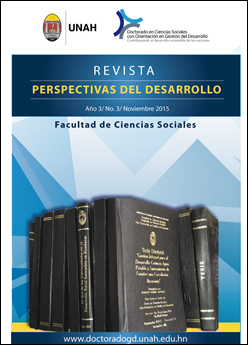Education for a culture of peace in Honduras: opportunities and challenges from the perspective of sustainable human development
Keywords:
Peace, culture of peace, human security, sustainable human development, violence manifest, relational violence, securityAbstract
In Honduras several organizations are working on finding initiatives and programs to study the issue of insecurity and violence in schools are a threat not only to the student community, but for the population. Therefore, since I am a committed educator manager of human development, in this issue we detect a situation that can be resolved through a cross-state strategy through the implementation of the culture of peace.
According to the Human Development Report Honduras 2008: From social exclusion to youth citizenship (2009), this problem has become a matter of primary importance for educators, students, parents and mothers and society in general, which reflected in the media where every day the diversity of school violence shows
The objectives and that are guiding this research are:
Through scientific understanding about peace building as a construct, generating a debate to promote the culture of peace that will allow coexistence to potentiate sustainable human development in Honduras.
Besides identifying expressions of school violence in young people, adolescents, teachers, fathers and mothers of Honduras.- analyze the expressions of peace as a phenomenon and its influence around human security, school security and the deployment of sustainable human development in Honduras.
Synthesize a scientific debate from the perspective of sustainable human development to implement the Culture of Peace in Honduras.
We lay the foundation of what we call sustainable human development, clarifying its most important dimensions, with particular attention to education.
Sustainable human development is the basic platform from which to interpret and analyze school safety and determine the serious problem of various types of violence that exists in educational institutions.
Revista Perspectivas del Desarrollo Vol.3(3) 2015; 71-84
Downloads
4616




